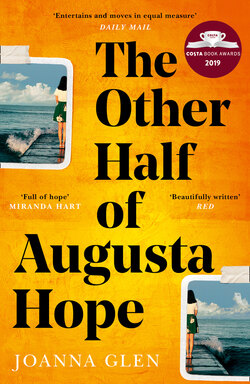Читать книгу The Other Half of Augusta Hope - Joanna Glen - Страница 12
Parfait
ОглавлениеI remember the day I met Víctor, the Spanish priest, out on the road on his bike. We started talking, and I found that things came pouring out of my mouth, things I’d been storing up inside, not knowing what I could do with them.
I told Víctor that, the week after Melchior Ndadaye was assassinated, my father, Melchior, died too.
‘The soldiers came to our colline,’ I said. ‘And my father turned his cheek because he wanted to break the chain.’
I told him that the next time they came, Wilfred the English missionary stepped in front of our pregnant neighbour, Honorine, so that the soldiers would shoot him instead of her.
‘I’ll never forget the way he was smiling, though he was dead,’ I said. ‘He was lying there amongst the daffodils his mother had sent over from England. I felt so bad about what our country had done to her son.’
Víctor nodded.
‘My mother went with the women to the rubbish dump,’ I said, ‘and they made daffodils out of old tin cans to put around his grave.’
I took a deep breath because I didn’t want to speak about Claude.
I’d told Claude to run when the soldiers came with flaming torches, but as I counted everyone in, behind the bush by the stream, he wasn’t there. We found his burnt body too late, cowering in the corner of our hut.
‘Wilfred’s still got the rope around his ankle,’ I said to Víctor. ‘The one that used to join onto Claude’s ankle. He won’t take it off, and I can’t ask him why because he won’t speak any more. Not a word since Claude died.’
I told him that my mother wasn’t feeling too good, but she wouldn’t go and see the doctor because all doctors were Tutsi and she didn’t trust them.
Things went on pouring out of my mouth, and Victor went on nodding.
He told me some things about his life. How he was setting up a school for deaf and blind children, up the hill, bringing them out of the shadows so that they wouldn’t feel ashamed of themselves any more. He invited me to come and see them, and I shook their hands, and Víctor gave me mango fruit chopped up in porridge in the little kitchen of his house.
‘Is Spain really over there?’ I asked him. ‘At the top of Africa and over the sea?’
I felt light coming into my body at the thought of this country that was real and full of peace and sunshine, and not so very far away.
‘It really is over there,’ said Víctor.
‘What’s it like?’ I asked him.
‘There’s sea pretty much all the way round, and people take picnics to the beach in the summer, and go swimming. We have festivals in the street at Christmas and Easter, when the men wear felt hats, and the women wear spotty dresses and roses in their hair – and we have this dance called flamenco.’
‘Did you ever dance flamenco?’ I asked him.
Víctor nodded.
‘I wasn’t always a priest,’ he said, laughing.
‘Is it like our dancing?’ I asked.
‘It goes something like this,’ said Víctor.
He got up off the little wooden chair and threw his hands in the air, and he started to dance about, with his hips swaying and his feet stamping.
‘The woman dances like this …’ he said, and now he was really laughing, and so was I, and he looked very funny with his big grey beard and his pinky skin, and his baggy trousers, swaying his hips and turning in circles and swishing out his imaginary dress.
A man called Nelson Mandela came on the radio.
Víctor stopped dancing and turned the volume up.
This Nelson Mandela had a voice you didn’t forget – kind of soft but hard underneath – like wool with steel inside it.
Nelson Mandela had made a suggestion to President Buyoya that the Tutsi and the Hutu could take it in turns to lead the country because this might stop Burundians fighting each other and dying all the time.
Víctor clapped his hands and said, ‘Yes! Yes!’
I said, ‘It’s so obvious. Why didn’t anyone think of it before?’
‘Because nobody likes to share power,’ said Víctor.
